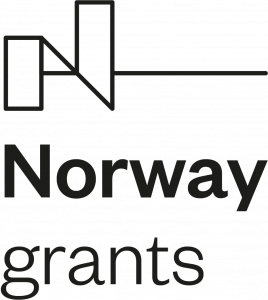The PolkaNorski project
 The PolkaNorski project investigates the development of language skills and world knowledge in Polish-Norwegian multilingual children and their monolingual peers in Poland and Norway.
The PolkaNorski project investigates the development of language skills and world knowledge in Polish-Norwegian multilingual children and their monolingual peers in Poland and Norway.
The project will investigate the relationship between children’s language skills, world knowledge and the linguistic, cultural and educational environment in which they grow up. We follow multilingual Polish-Norwegian children and majority speaking Norwegian and Polish children aged 2-6 years through four work packages.
In the first work package (WP2), the children’s language development is mapped using Polish and Norwegian versions of the MacArthur-Bates CDI questionnaire and the CLT vocabulary test. We will follow a group of children longitudinally to investigate both linguistic development and potential change in language dominance over time. The project will also result in monolingual and multilingual norms for both tools.
The aim of the second work package (WP2) is to compare word processing in monolingual and multilingual children. Using EEG, we will study the brain activity of two-year-olds who get to see pictures and hear words that fit or do not fit together. A year later, we will investigate whether the results from the experiment can predict their language development.
There are cultural differences in the view of nature between Norwegian and Polish parents and between Norwegian and Polish kindergartens. In the third work package (WP3), we follow children longitudinally to see how closely knowledge of the world of nature is connected to the development of language, and what the relationship to nature has to say for language skills and world knowledge. By studying majority speaking children in Poland and Norway and children of Polish immigrants in Norway, we hope to be able to say something about the role of the family on the one hand and kindergarten on the other in the development of children’s knowledge and vocabulary about nature.
The fourth work package (WP4) is an intervention study. Children’s language development starts even before birth, and we think that parents’ attitudes towards and knowledge of how to create a good language environment play a major role in children’s language development. In this study, we will recruit expectant Polish parents living in Norway. Half of the parents will be invited to a course on general early child development. The other half will be invited to a course on children’s language development and how parents can interact with and talk to their baby. This way, we can find out more about the relation between multilingual parents’ attitudes towards and knowledge about language and children’s language development.
Detailed project information:
Principal investigators: prof. Ewa Haman (University of Warsaw) & prof. Nina Gram Garmann (Oslo Metropolitan University & MultiLing, University of Oslo)
Partners: Oslo Metropolitan University, University of Oslo
Funds: Norway Grants (www.norwaygrants.org) via National Science Centre (GRIEG programme)
Project duration: 1.10.2020-31.03.2024
Contact information: projekt.polkanorski@psych.uw.edu.pl; Ewa Komorowska (project manager): ewa.komorowska@psych.uw.edu.pl
Team PL: prof. dr hab. Ewa Haman, Katarzyna Bajkowska, Weronika Białek, Martyna Burdach, dr Anna Duszyk, dr Agnieszka Dynak, Natalia Falkiewicz, Ewelina Fryzowska, dr Ewa Komorowska, dr Grzegorz Krajewski, Magdalena Krysztofiak, dr Itziar Lozano Sánchez, dr Magdalena Łuniewska, Wiktoria Ogonowska, Judyta Pacewicz, Julia Radzikowska, dr Andrzej Tarłowski, dr hab. Przemysław Tomalski prof. IP PAN
Team NO: prof. Nina Gram Garmann (OsloMet & MultiLing, UiO), dr Ingeborg Sophie Bjønness Ribu (MultiLing, UiO), dr Pernille Hansen (Inland Norway University of Applied Sciences & MultiLing, UiO), dr Anna Sara Hexeberg Romøren (OsloMet & MultiLing, UiO), Elisabeth Holm (OsloMet), dr Jolanta Kilanowska (OsloMet), dr Franziska Köder (MultiLing, UiO, Mari Sandbakken (OsloMet)

